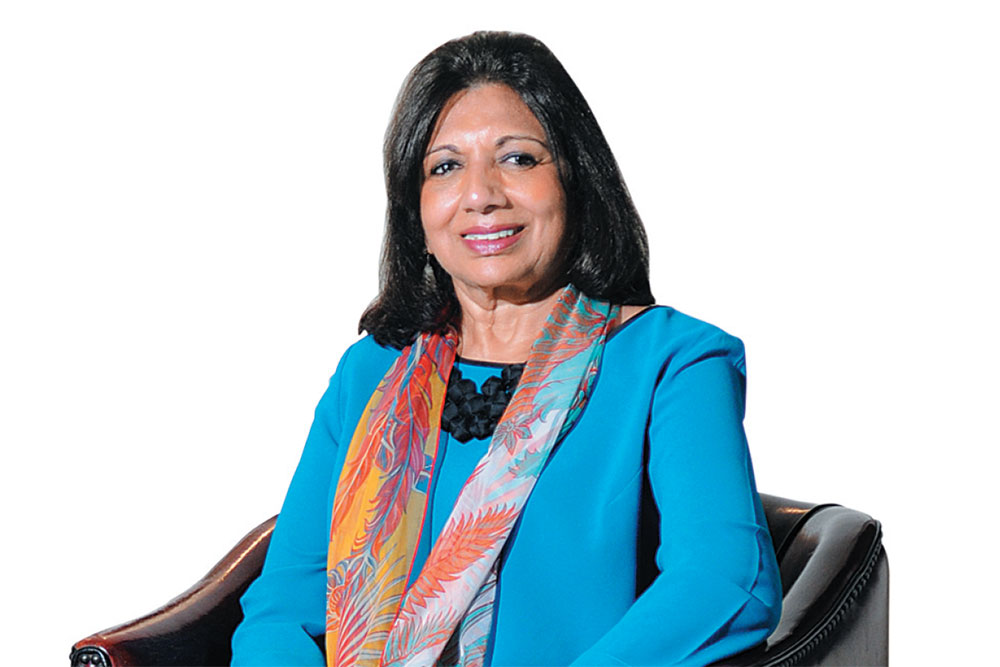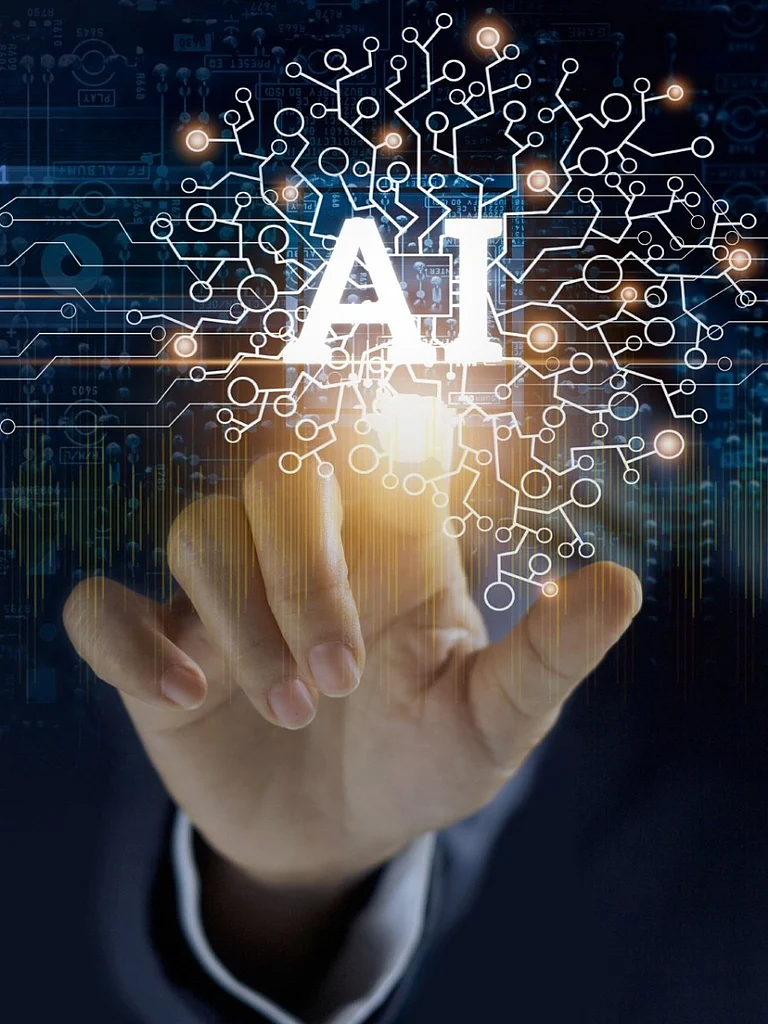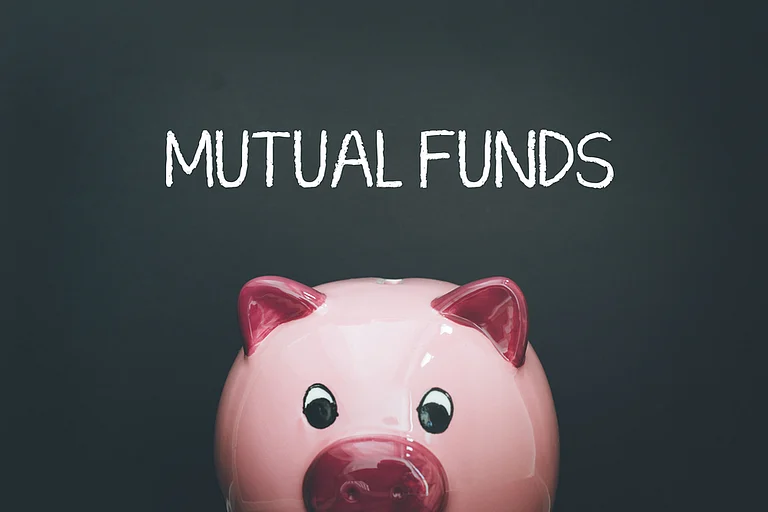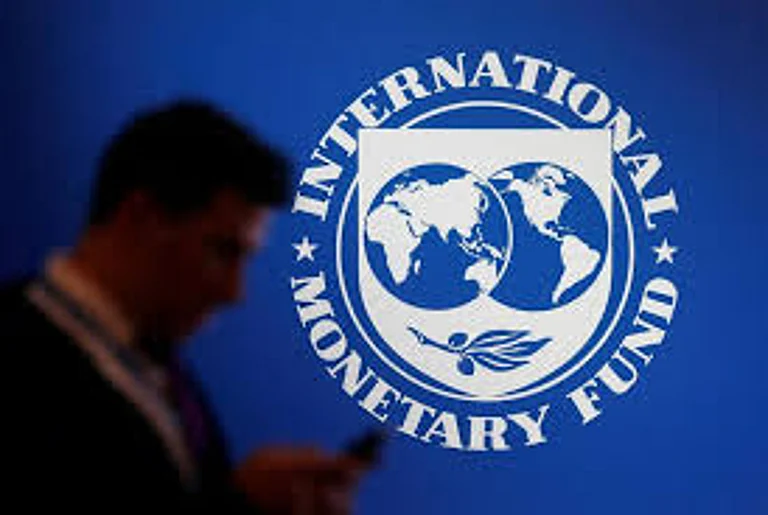I came back to India in 1978 to set up Biocon and it was the pre-reforms era. India was very averse to foreign investments or joint ventures. Under the Licence Raj, it was quite a hostile environment for people in business. Everything was done through the Directorate General of Trade and Development under the Ministry of Commerce — it was highly bureaucratic. Udyog Bhawan in Delhi was where it all happened. I would go there every day to figure out how to get all the permissions, permits and licences. Everyone warned me that getting all the approvals would mean paying a lot of bribes. In fact, when I was waiting to see Nirmal Biswas who headed DGTD, touts would approach me asking for Rs.10,000 for completing my project report. I had Rs.10,000 but that was the money I had set aside to start the company. So I refused to pay them. Every time they would see me, they would taunt me saying, I would be sitting in the corridors for a long time for my turn to come if I didn’t pay up. I finally got to meet Nirmal Biswas. I told him that I wanted to set up a company but I was told that it involved a lot of bribes; I had no way of paying those bribes, and if I had to, then I would rather not set up the company. He was horrified when I was so direct. Instead, he said, “Don’t listen to others. You don’t have to pay anyone anything.” He actually helped me write that whole application, running into multiple pages. He patiently explained to me that the only way to get the approval was to have either import substitution or export the required quantity. I figured out what my company’s product could substitute; the exports bit was also fairly clear since we would be shipping to Ireland. Every day I would finish one part of the application in his office. After I would return home, my poor mom would sit and type it on her typewriter. I would go back and show it to him the next day, and if it was fine, I would move on to the next part. After nearly three weeks of daily visits to Udyog Bhawan, I submitted my entire application to him. I only had to wait for the approval, then.
I came back to Bangalore and started to scout for a place to set up the company. And lo and behold, suddenly in the middle of November I got a telegram saying, “Congratulations, your application has been approved.” I was so delighted! I didn’t waste too much time. Biocon was registered on November 29, 1978. When I got my Padma Shri award, Nirmal Biswas came, and I told everyone that I had a lot to thank this man for, because he started me off on my journey.
I quickly rented a home and made the garage into my office. I had to face a lot of challenges in those days, because I was 25 year old and nobody took me seriously. Every time I would go to the bank, they would sort of shut the door on me. Can you imagine, I couldn’t even get a secretary to work for me! My friend Pratima [Rao] who is now the mission director at Biocon Foundation, felt sorry that I would complain of how tough it was to recruit people. She was a school teacher then. She offered to take a sabbatical and help me with all the paperwork — I was so relieved. She helped me for the first year. And that’s how we started.
Banks wanted collateral to grant me a loan. I had nothing to offer, so they would ask my father to be a guarantor. But I refused to do that, telling them that it was my company. At this point of time, there was a chance meeting with Dinesh Nayak from Canara Bank. I met him at a wedding reception at Ashoka Hotel. I told him that I was trying to run a company and gave him all the history. Though he admired my guts, I explained that I was not getting help from any banks. He promised to help and kept his word by extending a credit line of Rs.4 lakh.
My first hires were two tractor mechanics who were about to retire — Gangappa and Nasir Ahmed. I taught them the basics and how to operate the machines, and because they were mechanics, they could get it right. With the help of some more unskilled labourers, which thankfully I was able to hire, we started production. And in six months, I had my first shipment ready to export isinglass. We were the first Indian company to export food enzymes to the US and Europe. That was a big boost for me. Slowly I started expanding my business. Wherever I could find money at low interest or long-term borrowing, I would avail of it. That’s how I built the business. Then of course, exports started doing well. I started getting repeat orders. In the first year, Biocon had sales of Rs.800,000 and profit of Rs.100,000.
A year into the business, it was time to expand and I saw an ad in the paper for a distress sale of a 20-acre plot. It was perfect to set up the manufacturing facility. So I bought it for about Rs.18 lakh. Then, to build my first manufacturing and R&D facility, I approached the Karnataka State Financial Corporation (KSFC) for a term loan of Rs.14 lakh. Back then, women entrepreneurs were clubbed together with the handicapped and backward classes, and given concessions through a special scheme. I told them that I was neither handicapped nor did I belong to a backward class, so I didn’t need special concessions. Many people thought I was being stupid but I went ahead and took the term loan at regular terms. I remembered my dad’s words of not taking the easy route. The loan was the easy part for a change. It was the time when the Asian Games were coming up, so there was no cement and steel. It was all rationed out. So it took me three years to build the place but it was finally completed in 1983. As we started to expand, people also started to hear about us. My R&D head joined us from IIT Delhi. So did Ajay Bharadwaj who was also from IIT and had come back to India after his PhD from the US. He was working with Max when he read about Biocon and wanted to join us. A few years later, Arun [Chandavarkar] who is now our CEO, joined us. He was from MIT. Biotechnology and R&D were their passion and they could see I was trying to build a differentiated life sciences company. With their credentials, they could have gone anywhere yet they chose to join me, and it made me glad. What’s even more heartening is that some of the first few employees are still around. You can’t build a company alone. My success has been due to the fact that I have empowered and encouraged my team to solve problems.
With the team in place, I was looking to build a pilot solid-state fermentation plant. It was a new homegrown technology that we were looking to scale. This time around 1990, KSFC found the project too risky to fund and Rs.1 crore seemed too big an amount to risk. The Corporation wanted me to licence imported technology instead, but I refused.
Narayanan Vaghul of ICICI has been a great mentor. I first met him during a USAID meeting where he was on the India advisory board. They had an interesting programme called PACT which looked at funding partnerships between American and Indian companies working on innovative technology, which we went on to win. We kept in touch even after the programme was over. Whenever he would come to Bangalore, we would always catch up over a meal. It was over one such breakfast meeting that he asked how the business was coming along. I told him that we had developed an amazing home-grown technology to manufacture new enzymes, but were unable to raise funds to commercialise it. He said that the project was exactly what the Technology Development and Information Company of India (TDICI) —set up by UTI and ICICI to provide venture capital to develop new technologies— was looking for. He would be happy to fund it, provided we let TDICI take a stake in the company. I was more than happy to do so. I went looking for a term loan and returned with an equity investor. The meeting was really the inflexion point in my journey because if he hadn’t bet on me when I needed it the most, I wouldn’t have scaled up. I also turned profitable quickly since I didn’t have to pay exorbitant interest rates.
Within a year of venture funding, my Irish company got taken over by Unilever. So, we became a part of Quest International. Unilever, as soon as they came in, realised that the most valuable part of Biocon was in India and the technology that I had developed. So, they bought out TDICI’s stake for almost 4x in less than a year, and I got Unilever as my partner. They helped a lot in professionalising the company since we had to conform to these global standards. So, that was a very important part of my journey. We moved up that learning curve very fast and became the first company within Quest to get ISO 9001 certified.
Biocon was a nice amateurish conglomeration of entrepreneurial companies. So, we were professional to a certain extent but not to the extent that Unilever was. The kind of processes and systems they had, was many notches above what I was used to — be it their financial reporting systems, IP management or quality systems. I also learnt to deal with large conglomerates. We learnt to be tough negotiators when it came to supply arrangements or asking for more research funding. Quest was also contracting a lot of their R&D work to India and distributing our products as well. During the negotiations, we always stood our ground. Unilever was a minority stakeholder in Biocon India and they were keen on having a 51% stake. I kept refusing multiple requests to dilute my stake. This was my baby and I had no intention of giving it up. In 1994, we were looking at a 4x increase of our solid-state fermentation capacity. Unilever wanted a 50% share so we decided to put a plant at an investment of Rs.12 crore. Unilever and Biocon would put in Rs.2 crore and the rest would be funded by a bank loan. I couldn’t wait to start, so I didn’t wait for their approval either. The plant was up and running in 1995. While Viktor Rensing, CEO of Quest complimented me on my fast execution, I did draw a lot of flak for violating norms. But I couldn’t care less. In business, there is nothing worse than a missed opportunity. This was before my marriage. John [Shaw] was a good friend, so I would always ask his advice on how to deal with multinational companies. He would tell me that they are very bureaucratic and it would take a long time to get any decision out of them. “If you are in a hurry to do something, go ahead and do it and then break the bad news that you did it.” And that’s what I did!
By now we had developed a lot of sophisticated technology and IP around the manufacturing of enzymes. Finally, there came a point in time when I asked myself, why are we only making enzymes? I wanted to leverage all that we had done in enzymes and see what else we could do. Biopharma was the next logical step. So, that’s why we chose to foray into pharmaceuticals in 1998. Since we were also dealing with niche enzymes, the global market opportunity was limited with single-digit growth rates. Over the next two decades, the pharma market was expected to be nearly 25x the size of the enzymes market. It was clear where we were headed.
By then Unilever was beginning to move out of speciality chemicals and didn’t want to be part of the pharma business. They wanted to sell the whole business to ICI. I told them I don’t want to be a part of ICI. That’s when I used my preemptive right, in 1998, to buy back the shares from Unilever. John and I had just got married, after having known each other for seven years. So, he helped me do it. He always jokes with me, saying, “By marrying an Indian I thought I would get a dowry, but you cleaned me out.” But he has no regrets. He keeps saying that [the business] is the best investment he has ever made!
John was the managing director of Madura Coats, when he came to India. I met him when he came to Bangalore in 1991. To give all that up and support me in my business was a great show of strength for a man. He has always supported me and been my conscience keeper in many ways. He has always given me a sense of balance and doesn’t let things go to my head. We work very well as a team because I am the scientist and he is the financial brain. He would always tell me to be adventurous in your science but conservative with finances.
I am still the biggest risk-taker in the company. You cannot stay on the beaten path and be a successful entrepreneur. I like to take big risks, but it is sort of an informed judgment call in many cases. Like the time I wanted to get into antibodies. That was a risk I was willing to take. That’s how I went to Cuba where they had this new technology to develop antibodies. They were not approved but at least there was some safety data that I could leverage. So I brought it back to India and started developing novel antibodies. Except, maybe I developed it in the wrong country that didn’t understand what I was trying to do. We managed to commercialise those novel antibodies and they are really amazing drugs. By using that technology, I was able to develop biosimilars. That became much easier for a company like ours because we understood the complexity of developing world- class antibodies.
I drew a lot of flak over the past couple of years because I decided to foray into a high-risk sector like biologics and biosimilars. Nobody believed in it. Everyone thought I was making wasteful and risky investments — investments that were never going to pay back and were eroding shareholder value. I was called a lousy business leader when Biocon underperformed the pharma sector and generics were on a high. Investors would ask me, “Why don’t you do what the other pharma companies are doing? Why are you being so stubborn about pursuing an opportunity in biosimilars and biologicals?” Some of their concerns were not misplaced. It takes two years and $5 million to develop a generic drug and upwards of $150 million to develop a biosimilar. But it was a risk worth taking. There were times when I was even told that I should not be in this position and hand it over to a man instead. I couldn’t believe how misogynic our society was. I assured myself that if I could overcome the very difficult time in the beginning, surely I could overcome it again. I told myself that I wasn’t going to listen to all this nonsense; I knew what I was doing. I would prove that in the not too distant future, what I was doing would pay back big time. And, it has.
***
By the end of 2017, we managed to get the first-ever approval for a biosimilar drug to treat breast and stomach cancer in the US. It was the culmination of a 10-year effort. You see, nothing about our business is easy. It takes a lot of grit and determination and sometimes, all the hard work can come to nothing. You pick up the pieces, figure out what went wrong and moving ahead, give it another shot. But the approval is definitely a shot in the arm and proves that we are moving in the right direction. Now a bunch of approvals are going to be very important for us. Now all my naysayers are silenced and have turned into my well-wishers. But I’ve learnt not to get swayed by all this. You know the saying: success has many fathers and failure is an orphan!
I find this phrase very inspiring: failure is temporary but giving up is permanent. I’ve always believed in that dictum. At the same time, when it’s a true failure, you should recognise it and walk away. Like the time we bought a company in Germany in 2008, which I thought would be a great add-on for Biocon’s gateway into Europe. But it didn’t work. For two years, I tried to make it work, but finally realised that it would not. So, I sold it back to the promoters. I came out relatively unscathed. But that was a failure that I recognised and walked away from.
When you have a research-led business model, the biggest challenge was to make people understand that business is not just bricks and mortar. Intellectual property (IP) is a bigger and much important asset than land and factories. Raghunath Mashelkar taught me a lot about IP and it is great to have him as a sounding board. I am greatly influenced by him. In whatever we have done, we’ve tried to develop our own IP. Our first validation of our efforts came during our IPO in 2004. On listing, it was ecstatic to see the company’s valuation zoom to a billion dollars. It was definitely a ‘Eureka’ moment for me since till then, I hadn’t realised the value we created. It was such a big thrill and more importantly it was recognition of the business and the IP that we had built over the past two decades.
Though my father passed away in 1993, he did see me achieve some success. He kept telling me, “Kiran, I am so proud of you! I told you, you could do it.” He was my biggest supporter and fan till the end. He would always tell me, “In everything that you are doing, never forget people, they are your biggest assets, never compromise and breach integrity.” I have never forgotten what he has told me. My mother was absolutely distraught when my father passed away since they were such an integral part of each other’s lives. I told her that the best way to get over the grief was to work and do something with her life. So she started with organic farming, she was in her early 60s then. My mother is an amazing woman. She later moved on to set up a laundry and dry cleaning service, because there was a big need for it in Bangalore. She approached Karnataka Industries Development Corporation for a loan. When the officer asked her why she wanted to start a business, at her age, she told him, “If Atal Bihari Vajpayee, at his age, can run a country, why can’t I run a business?” She is quite a character. She runs a very successful and profitable business now. Every year she divides the profit between her three children, my two brothers and I. She will turn 87 now, but she runs her own life. She is very happy that she doesn’t have to ask for money from us. If dad was my driving force in the first half of my life, my mother is definitely my inspiration during the latter part of my life. I get all my energy and entrepreneurial instincts from my mother.
It gives me great pride that we are the only company in the country that is pursuing a global opportunity in biosimilars. We also have a very interesting pipeline of novel drugs. I want one of them to really make it big. My nephew, who is now doing his PhD at Berkeley, was given an essay to write by his teacher when he was six years old on: What would you do if you found a pot of gold? He wrote, if I found a pot of gold, I would give it to my aunt, so that her company can make good medicines for very bad diseases. Truly, that’s all I want to keep doing.
This is part two of a two-part series. You can read part one here.











 Just one email a week
Just one email a week